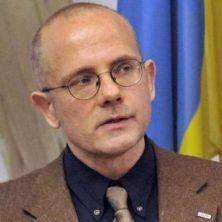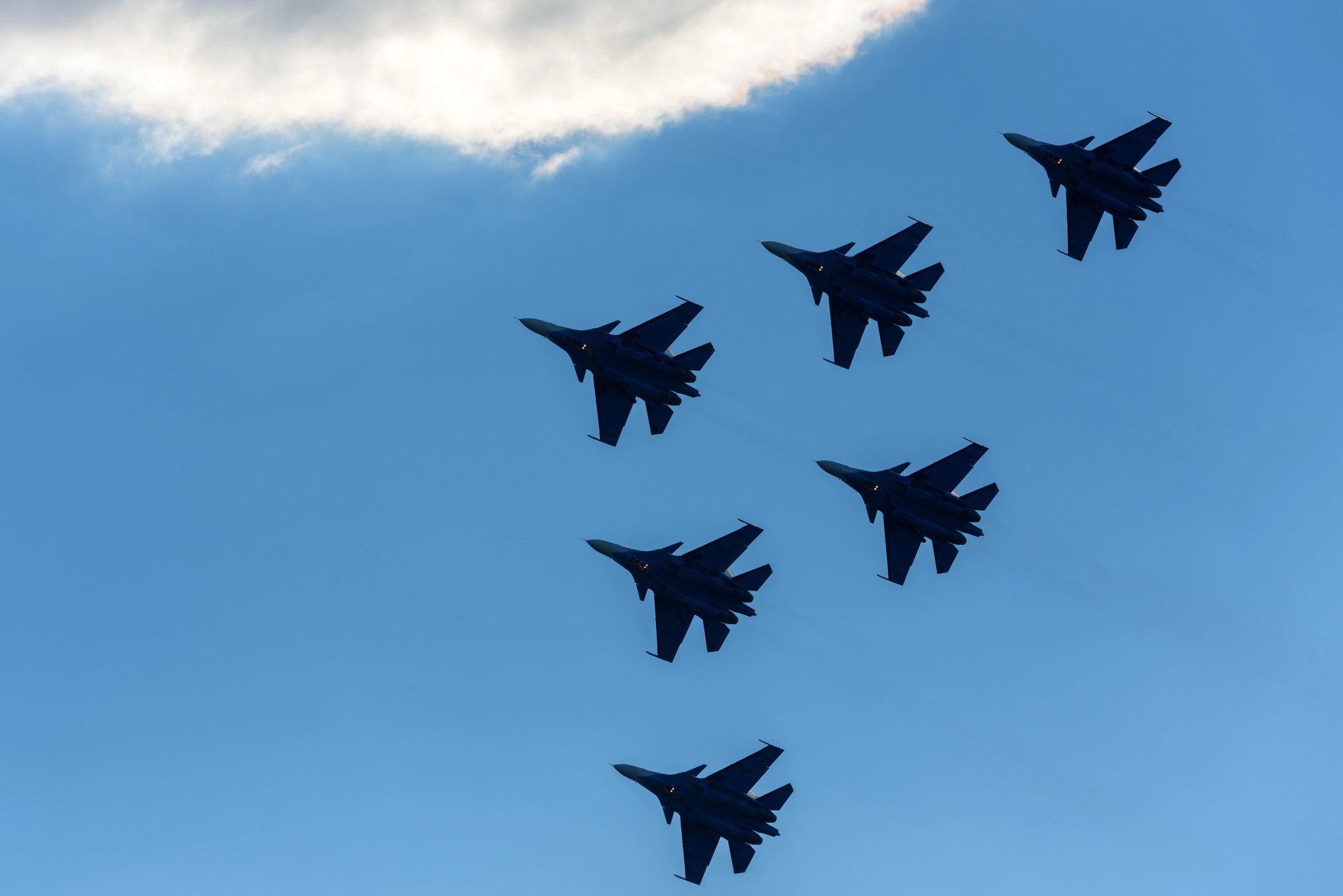The demonstrative cooperation of politicians of the nuclear powers China and France with a Russia comes at a high price not only for Ukraine. Continuing, re-building or even intensifying official ties to a violator of the NPT may currently look to many politicians, across the world, as feasible and pragmatic. However, future generations may regard, especially, the collaboration of leading representatives of guarantor-countries of the NPT, with the Kremlin, as an impermissibly consequential digression from humanity’s non-proliferation regime.
The international repercussions of the so-called “Ukraine Crisis” go beyond Eastern Europe. Among others, Russia’s attack on Ukraine subverts the logic of the 1968 Treaty on the Non-Proliferation of Nuclear Weapons (NPT) designed to curtail the spread of weapons of mass destruction. In the mid-1990s, Ukraine gave up its atomic weapons arsenal, then the world’s third largest, it had inherited from the Soviet Union, and joined the NPT. In exchange, three of the five permanent members of the UN Security Council, the US, Russia and UK, at a CSCE summit in Budapest in December 1994, signed, together with Ukraine, a Memorandum on Security Assurances. In this document, Moscow, Washington and London, as the three original signatories of the NPT, assured Kyiv of the territorial integrity and political sovereignty of Ukraine.
Russia has, with its annexation of Crimea and its hybrid war in the Donets Basin broken most of the promises it had given 20 years before to Ukraine. De facto Moscow has abandoned the Budapest Memorandum and thus implicitly abrogated the NPT. What most people are less aware of is the deep involvement of Beijing and Paris in this touchy issue of world security. The Chinese government as well as some prominent French mainstream politicians have, with their equivocal stance on Russia’s behavior, assisted the Kremlin in its subversion of humanity’s non-proliferation regime. Few today remember the messages sent by Paris and Beijing to Kyiv, concurrently to the Budapest Memorandum, twenty years ago. Apart from the United States, Russia and Great Britain, the remaining two nuclear powers under the NPT too declared their respect for Ukraine’s political sovereignty and territorial integrity in official governmental documents.
Though also being a party to the 1994 deal on Ukraine’s nuclear arsenal, Beijing avoids to take any clear position on Russia’s recent conduct, and has only made general statements on the inviolability of state borders. China was the only permanent Security Council member that abstained from the 2014 UN General Assembly vote in which 100 countries condemned the annexation of Crimea. Beijing did not do so in spite of the fact that, 20 years earlier, it had provided Kyiv with a “Statement of the Chinese Government on the security assurance to Ukraine issued on 4 December 1994.” There, Beijing had pronounced that it “fully understands the desire of Ukraine for security assurance. […] The Chinese government has constantly opposed the practice of exerting political, economic, or other pressure in international relations. It maintains that disputes and differences should be settled peacefully through consultations on an equal footing. […] China recognizes and respects the independence, sovereignty, and territorial integrity of Ukraine.”
The Crimea Week
Crimea Triangle: Where do Missing Trucks from Ukraine Go? (Yuriy Gorodnichenko (UC Berkeley) and Oleksandr Talavera (U Sheffield), co-founders of VoxUkraine)
The Geostrategic Games around the Word «Investment» in Crimea (Ridvan Bari Urcosta, political scientist)
In view of the contents of this declaration, intentionally or not, Beijing is, with its current behavior, further widening the already deep crack in the global security system. The intensification of Chinese-Russian political contacts and economic ties since spring 2014 contradicts the spirit of the NPT, in general, and of Beijing’s 1994 assurances to Kyiv, in particular. Beijing’s behavior helps Moscow to compensate for its loss of economic ties with the West, and provides important public symbolic support to the Kremlin, at bilateral and multilateral summits. The Chinese leadership takes geopolitical advantage of the Kremlin’s current isolation and uses the West’s disengagement from its various partnership programs with Russia, in order to get easier access to Russian raw materials. With such self-serving tactics, China is strengthening the perception that the official nuclear powers will ignore foundations of humanity’s non-proliferation regime when it comes to asserting their national interests. Moreover, Beijing does so at the expense of a state which once had far more nuclear weapons than China, yet gave them voluntarily away. Instead of following up on their earlier announcements and assurances, such is the impression that not only Moscow but also Beijing conveys, the official nuclear powers will pursue their own interests and disregard the logic of non-proliferation, when push comes to shove.
To be sure, this is not only a problem of the non-Western political elites of Russia and China. In July 2015, a group of ten French parliamentarians, most belonging to the party The Republicans of former and possible future President of France Nicolas Sarkozy, visited occupied Crimea. By doing so, the mainly conservative deputies were violating the Western sanctions regime against Russia’s annexation of the peninsula as well as, by implication, the NPT. The visit demonstrated the disregard of the deputies for the assurances given to Ukraine, with regard to her territorial integrity, when it joined the NPT in the mid-1990s and got rid of its large nuclear weapons arsenal.
The trip of the French right-wing parliamentarians to Simferopol had a different meaning than the earlier visits to occupied Crimea by representatives of European radical fringe parties. The visit of the prominent conservative politicians happened although, on 5 December 1994, France, under its then center-right Balladur government, that included Minister of Budget Sarkozy, had issued a “Statement by France on the Accession of Ukraine to the NPT.” In this document, “France reasserts its commitment to respect the independence and sovereignty of Ukraine in its current borders, in agreement with the principles of the final Helsinki Act and the Paris Charter for a New Europe. France reminds its attachment to the principles of the CSCE according to which borders can only be modified through peaceful means and mutual agreement, and the participating States refrain from using threats or force either against the territorial integrity or the political independence of a State, or through any other means incompatible with the goals of the United Nations.”
The demonstrative cooperation of politicians of the nuclear powers China and France with a Russia that officially includes Crimea and unofficially wages war in the Donets Basin comes at a high price not only for Ukraine. Continuing, re-building or even intensifying official ties to a violator of the NPT may currently look to many politicians, across the world, as feasible and pragmatic. However, future generations may regard, especially, the collaboration of leading representatives of guarantor-countries of the NPT, with the Kremlin, as an impermissibly consequential digression from humanity’s non-proliferation regime.
Andrew Kinder and Remi Boissonnas helped with preparing this text
Attention
The author doesn`t work for, consult to, own shares in or receive funding from any company or organization that would benefit from this article, and have no relevant affiliations



